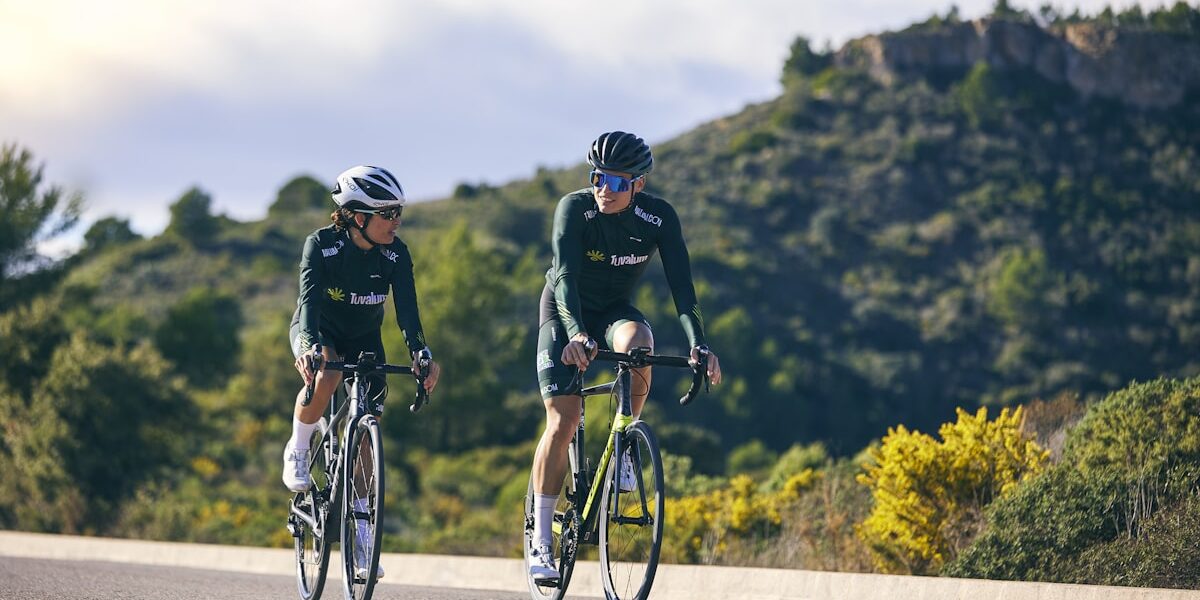Cycling nutrition has gotten complicated with all the supplement claims and timing strategies flying around. As someone who’s bonked on rides from poor fueling and learned from those mistakes, I learned everything there is to know about eating for cycling. Today, I will share it all with you.
That’s what makes fueling endearing to us performance-obsessed cyclists — the right nutrition transforms how far and fast you can ride.
Calorie Basics
Probably should have led with this section, honestly — understanding energy needs prevents both bonking and overeating.
Cycling burns significant calories. An hour of moderate riding uses 400-600 calories depending on intensity and body weight. Harder efforts burn more. Your body needs fuel to replace what you’re burning.
For training days: eat more. For rest days: eat less. Simple concept, hard execution.
Macronutrient Breakdown
But what should those calories be? In essence, carbs for fuel, protein for recovery, fats for sustained energy. But it’s much more than that.
Carbohydrates: Primary fuel source. 6-10 grams per kilogram of body weight daily for serious training. Pasta, rice, bread, fruit, oatmeal.
Protein: Muscle repair and recovery. 1.2-2.0 grams per kilogram of body weight. Chicken, fish, eggs, legumes, Greek yogurt.
Fats: Sustained energy, especially for longer rides. 20-35% of total calories. Avocado, nuts, olive oil.
Pre-Ride Eating
I’m apparently in the camp that eats a real meal 2-3 hours before riding. Frustrated by stomach issues from eating too close to rides, I learned to time meals properly.
Good pre-ride options: oatmeal with banana, toast with peanut butter, rice with chicken. Avoid high fat and fiber close to ride time — they digest slowly and can cause issues.
During the Ride
Rides under 90 minutes: water is usually enough.
Rides over 90 minutes: start eating early. 30-60 grams of carbs per hour prevents bonking.
- Energy gels — convenient, fast-absorbing
- Bananas — natural, cheap, effective
- Energy bars — more substantial, take longer to digest
- Sports drinks — hydration plus carbs together
Practice with nutrition on training rides. Never try new foods on important rides.
Post-Ride Recovery
The 30-minute window after riding matters. Carbs to replenish glycogen, protein for muscle repair.
Quick options: chocolate milk (seriously works), smoothie with fruit and protein, toast with eggs. Real meal within 2 hours.
Hydration
Don’t wait until thirsty to drink. 500-1000ml per hour depending on conditions and sweat rate. Add electrolytes for rides over an hour or in heat. Monitor urine color — pale yellow means hydrated.
Making the Call
Match eating to training intensity. Fuel for the work you’re doing. Practice nutrition strategy on training rides. Stay hydrated before, during, and after. Don’t overthink supplements — real food works for most cyclists. Listen to your body and adjust based on what works for you.
Recommended Cycling Gear
Garmin Edge 1040 GPS Bike Computer – $549.00
Premium GPS cycling computer with advanced navigation and performance metrics.
Park Tool PCS-10.2 Bicycle Repair Stand – $259.95
Professional-grade home mechanic repair stand for all bike maintenance.
As an Amazon Associate, we earn from qualifying purchases.



